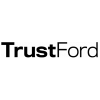
What Tyres Should You Fit to Your Car?
If you want to get the best price for your car when you’re selling it, especially privately, don’t underestimate the power of new tyres. Of course, you have to replace any that are not legal regardless of whether you’re selling the vehicle or not, but there are times when you might want to replace tyres that still have some life left in them even when you're putting your car up for sale.
Knowledge and perception
Anyone who hasn't been professionally involved with selling used cars would probably assume that if the tyres on the vehicle you are selling are legal then there's nothing wrong with them. Unfortunately, making that assumption could make selling your harder and it is almost certain to adversely affect the price you end up getting for your vehicle.
You see, the majority of private buyers you are likely to come across when you put your car up for sale don’t really know a lot about used cars. They may have done a little research on some things to ask about with that particular vehicle, but they're not going to be looking underneath and in the engine bay like a trained and experienced professional would.
They may even know that if your car hasn't got a certain cost-option that's considered almost essential, such as an upgraded infotainment system or adjustable suspension, it means they can beat you down on price. However, what almost every buyer you come across will know about is that worn or damaged tyres will soon need replacing, and that's going to cost them money.
This is an area where they will feel confident about challenging you, and some of the more astute buyers may also be a little wary of the rest of the vehicle if it makes them think it perhaps shows you haven't been particularly proactive with your preventative maintenance and general care of the vehicle.
Disproportionate focus
If your vehicle's tyres are not in great shape you're on the back foot from the word go and don’t underestimate the disproportionate amount of focus some buyers will put on even a single dodgy tyre. On the plus side, this could lead them to overlook a more serious issue or issues the vehicle might have, but let's assume the test of the vehicle is fine.
I've sold many, many vehicles under a manufacturer's ˜Approved Used˜ scheme where the standard tyre depth had to be 3mm, even though the legal limit was 1.6mm. Even so, the arguments I've had with buyers who want a tyre replaced as part of the deal when it has 3.5mm of tread all over it still give me nightmares.
You can use this disproportionate focus to your own advantage though.
Appearance is everything
When you’re selling your vehicle and the tyres have something like 2 to 2.5mm of tread left, fitting a new set of rubber can pay dividends and it doesn’t have to cost a fortune. Ok, so if you have a 20-year-old Ford Fiesta with 130k miles on the clock you’re not going to do this, but if you’re selling something for let's say £5k or more this is definitely worth considering.
Fit a set of brand new tyres to sell your vehicle, but don’t worry about the brand. You might have to pay £150 or more each for Goodyear, Pirelli, Bridgestone or some other high-quality makes, but you could get cheap tyres for as little as £50 each.
Spending £200 on brand new tyres will massively impress the vast majority of private buyers, and you’re unlikely to get any who moan about the brand. Your used vehicle has BRAND NEW TYRES ALL ROUND, what more do they want? That £200 spend could mean you get hundreds more than that back compared to selling with legal but heavily worn tyres.
On the other hand
I have to add a caveat about tyres to finish though. If you are buying tyres for a vehicle you’re not selling, then fit the very best rubber you can afford. The quality of tyres you have on your vehicle has a huge bearing on how it drives and handles and on how safe you are going to be out on the road. If you're selling your car, the new owner has the option of fitting their own tyres of better quality if they wish, but if you’re fitting tyres for yourself and your family then make sure you invest in quality.













